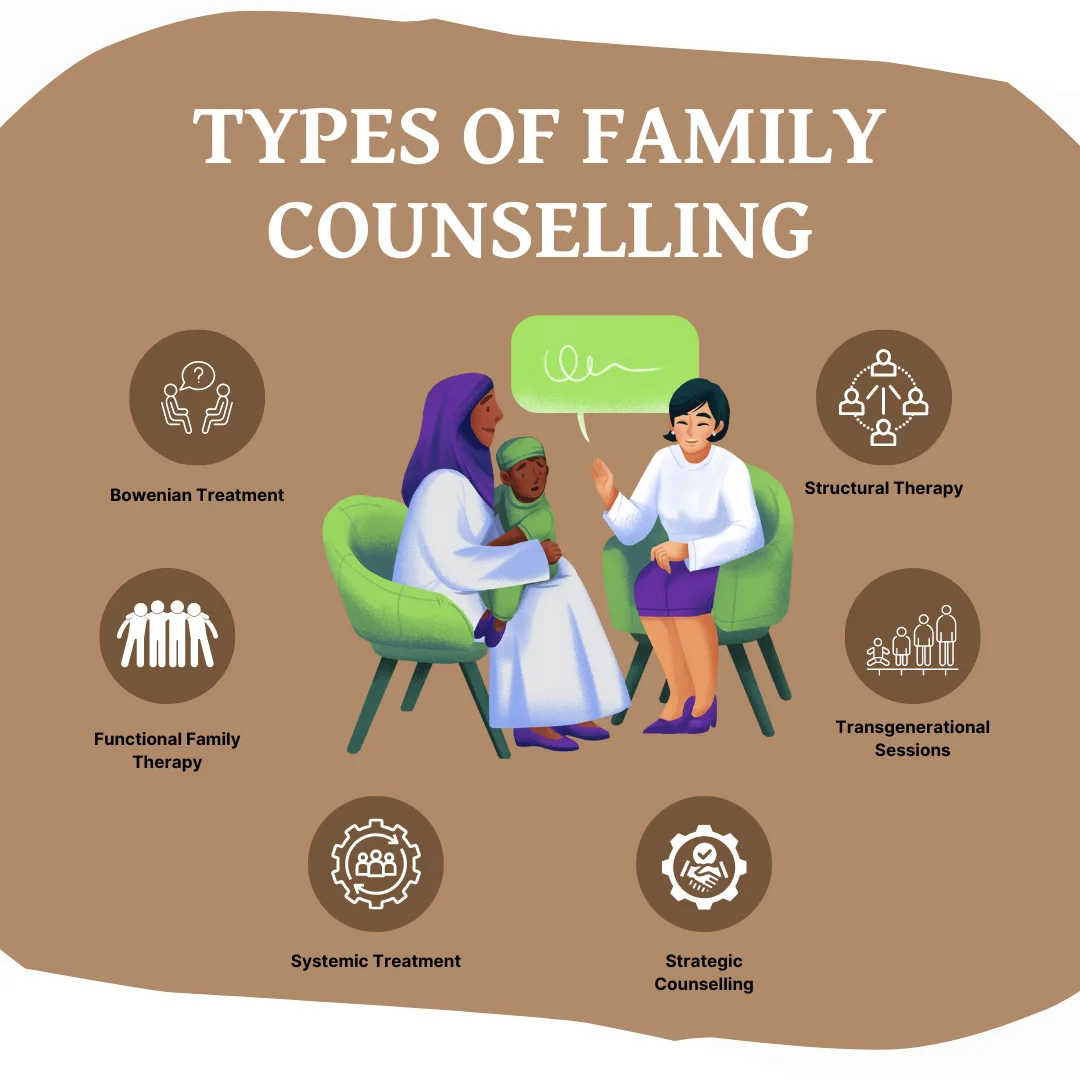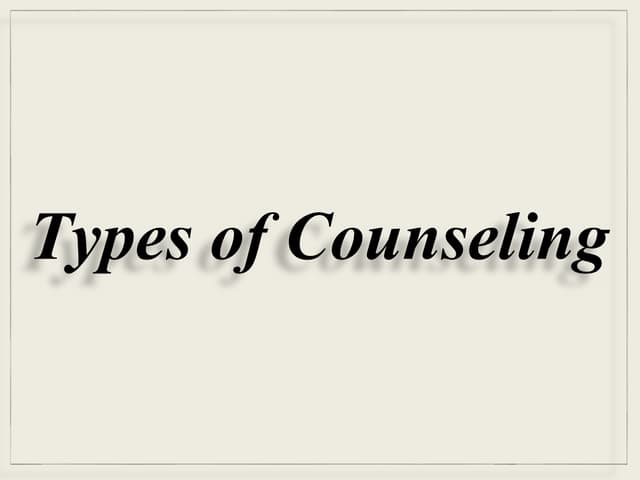A Comprehensive Guide to the Numerous Types of Therapy and Their Impact
Therapy incorporates a range of healing methods, each made to meet one-of-a-kind mental health and wellness needs. From the organized strategies of Cognitive-Behavioral Therapy to the compassionate nature of Person-Centered Therapy, these methods offer distinctive pathways to individual development. Family therapy and Dialectical Behavior Treatment offer added structures for healing, while team counseling fosters community assistance. Understanding these diverse techniques can brighten their profound effect on private wellness. What stays to be discovered are the intricacies of each approach.

Comprehending Cognitive-Behavioral Therapy (CBT)
Although many restorative approaches exist, Cognitive-Behavioral Therapy (CBT) sticks out due to its organized, ambitious nature. This form of treatment is based on the facility that ideas, feelings, and actions are interconnected, and by altering adverse thought patterns, people can alter their emotional feedbacks and activities. CBT uses different strategies, such as cognitive restructuring, which aids clients determine and challenge altered ideas. Behavioral activation motivates interaction in satisfying tasks to combat clinical depression.
Normally, CBT is a temporary therapy, often lasting between 12 to 20 sessions, making it obtainable for those looking for quick results. Its performance has been well-documented in treating stress and anxiety disorders, depression, and other psychological health problems. The therapist's function is to assist customers with workouts and research jobs, cultivating self-awareness and advertising lasting coping approaches. This practical approach empowers people to take control of their psychological health, inevitably bring about boosted life complete satisfaction.
Checking Out Person-Centered Therapy
Person-Centered Therapy, developed by Carl Rogers, provides a contrasting method to Cognitive-Behavioral Therapy by highlighting the client's subjective experience. This therapeutic model prioritizes the individual's perspective, fostering an environment of empathy, genuine favorable regard, and authenticity. By enabling customers to explore their feelings and ideas without judgment, specialists help with personal growth and self-discovery.
The core tenet of Person-Centered Therapy is the belief that individuals possess the inherent capacity for self-healing and personal advancement. In this setup, the specialist functions as an encouraging overview as opposed to an instruction authority, urging clients to organize their own journey. This technique is specifically effective for those coming to grips with problems such as low self-confidence, anxiety, or anxiety, as it encourages them to face and comprehend their emotions. Eventually, Person-Centered Treatment grows a solid therapeutic partnership, fostering trust and visibility vital for purposeful adjustment.
The Role of Household Treatment in Healing
Family treatment works as an essential element in the recovery process for individuals and their relationships. This therapeutic approach focuses on improving communication, dealing with disputes, and fostering deeper links amongst relative. By dealing with dysfunctional characteristics, household treatment urges each member to reveal their ideas and sensations in a secure environment, promoting understanding and compassion.

The effect of family therapy expands past the sessions, as enhanced relationships can lead to improved emotional wellness for all included. Overall, family members therapy plays a vital function in healing by cultivating unity, durability, and shared assistance among member of the family, eventually guiding them toward a much healthier, more satisfying life with each other.
Unboxing Dialectical Behavior Modification (DBT)
Building on the foundation of restorative strategies that enhance emotional health, Dialectical Behavior modification (DBT) offers a structured structure for people having problem with intense feelings and behavior obstacles. Developed by Marsha Linehan, DBT integrates cognitive-behavioral methods with mindfulness methods, intending to aid customers take care of overwhelming feelings and improve interpersonal efficiency.
The treatment is especially beneficial for those diagnosed with Borderline Personality Condition however is likewise relevant to a series of various other psychological wellness concerns. couples counselling. DBT includes specific treatment sessions and abilities training teams, focusing on four key capability: mindfulness, distress tolerance, emotion policy, and interpersonal efficiency
The Benefits of Group Counselling Sessions
While individual therapy offers useful understandings, team therapy sessions supply one-of-a-kind advantages that can greatly improve the healing experience. One vital benefit is the feeling of area that arises among participants. People often locate convenience in sharing their experiences with others dealing with similar challenges, cultivating an encouraging setting that lowers sensations of seclusion.
In addition, team sessions encourage diverse viewpoints, permitting individuals to learn from each various other's coping approaches and understandings. This cumulative knowledge can cause enhanced problem-solving abilities and a more comprehensive understanding of individual problems.
Additionally, team counseling frequently advertises responsibility, as members encourage view it each other to pursue their objectives and stick to their commitments. Finally, the cost-effectiveness of team treatment makes it an accessible alternative for lots of individuals looking for support. Generally, the joint nature of team counseling sessions can considerably enrich the therapeutic trip.
Regularly Asked Concerns
What Credentials Do Therapists Required to Practice Counseling?
Specialists normally require an appropriate level in psychology or counseling, along with monitored clinical experience. In addition, they should get suitable licensure or qualification to practice lawfully, making certain adherence to professional criteria and my blog ethical standards.
Just how Do I Select the Right Sort Of Therapy for Me?
Selecting the appropriate kind of treatment entails examining individual needs, discovering numerous techniques, taking into consideration therapist specialties, and seeking referrals. Understanding specific goals and choices can greatly improve the effectiveness and fulfillment of the therapeutic experience.

Are Online Therapy Procedure as Effective as In-Person Ones?
The effectiveness of online therapy sessions contrasted to in-person ones often depends on specific preferences and circumstances. Study suggests that both methods can generate favorable outcomes, though some might locate higher comfort in face-to-face communications.
For How Long Does Counseling Generally Last?

What Should I Anticipate Throughout My First Therapy Session?
Throughout the very first counseling session, customers can anticipate an introduction, discussion of their More hints problems, facility of goals, and a review of the therapy process - couples counselling. This first conference aims to develop rapport and guarantee convenience